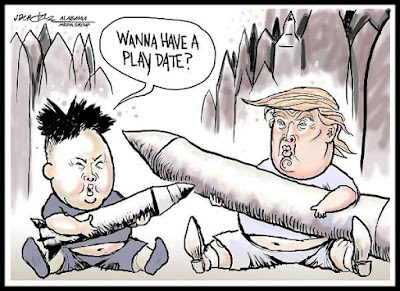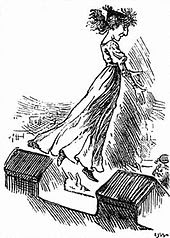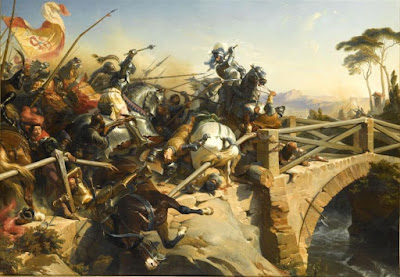Opera: I have seen 15, albeit a number of them being single act works in Opera North's latest 'Little Greats' season. Among these was a 'Trial by Jury' which I can honestly say was the first Gilbert & Sullivan that I have ever enjoyed. Am I getting old? However, the best piece that I saw was a chamber version of 'The Turn of the Screw' while other highlights included a wonderful semi-staged Turandot and the first Tosca I have seen where the heroine actually throws herself off the battlements instead of doing away with herself in a manner unfaithful to the libretto, but simpler to portray on stage.
Theatre: I saw 46 plays (including Romeo and Juliet four times) which only included one real stinker (which wasn't one of the Romeo and Juliets), plus a few that I wouldn't bother to watch again (which did include one of the Romeo and Juliets). A few things stand out: 'Twelfth Night' at the Globe, Bazza's farewell, and a very explicit 'Rita, Sue and Bob Too'. I'm going to award two prizes: Best One Man Show which will be shared between 'The Autobiography of Jane Eyre' and James Hornsby's 'David Copperfield' and Best Theatrical Experience That Has Something Loosely To Do With Jane Austen which is also shared, this time between 'Mr Darcy Loses the Plot' and 'Austentatious'.
Films: I saw 15 on the big screen. Of the new ones (I'll exclude Vertigo and The Graduate from consideration) the best was 'The Handmaiden' which I highly recommend, although as I think I said at the time it's best not to watch it with your mother. Honourable mentions go to 'The Death of Stalin' (did anyone else think Jason Isaac's Zhukov was essentially an homage to Sean Bean?) and 'Baby Driver'.
Books: I am bereft. I can find no indication that there is any intention to translate the fourth book in the 'Fortunes of France' series into English, let alone the rest of them. This is a disaster. In the absence of 'Le Prince que voila' I am instead going to go for 'The Song of Achilles' by Madeline Miller.
 |
| "Throw me a frickin' bone here!" |
Gigs: I have seen 43 of these with the blues featuring very strongly. Nevertheless Tom Russell, whom I saw twice, has to be the best with honourable mentions for Wille and the Bandits, Devon Allman and Eugene 'Hideaway' Bridges.
 |
| Pancho Villa crossed the border... |
Wargames: Highlight of the year was undoubtedly the trip to Kirriemuir, the biggest game that I am ever likely to play in, and the chance to roll dice with with Charles S. Grant. It was excellent, but it was a long, long way. Best game in the annexe was, I think, the ersatz Eckmuhl with Prussians standing in for Austrians in an EPIC C&C scenario. Best game at James' was Sidi Rezegh. No, just kidding, it was his Garigliano scenario, especially the four player game.
Event of the year: This is a tough one. Possibly I should just acknowledge the fact that this year I didn't get taken to A&E in an ambulance even once. It's also hard to look beyond the kick-off for the new rowing boats on the river, which was extremely funny and compelling in a 'can't take your eyes off it, car crash' sort of way; the lesson learned being that Members of Parliament shouldn't get in a rowing boat with someone four times as heavy as themselves. However, I'm going to plump for what happened in Knaresborough on May 30th, the significance of which wasn't fully understood at the time, and the details of which I am not going to reveal.
Observant readers may have noted that some of the items mentioned above are making their first appearance here. My diarist's mojo deserted me at some point in the autumn with the one beneficial result being that I have no longer had the compulsion to tell you either what I ate for breakfast (porridge with cinnamon, honey and sultanas as it happens) or every last detail of my ongoing cultural pseudery. Among the other elements of my life to be jettisoned was playing boardgames, hence the lack of reports on those recently. I had become somewhat jaded with it all, but I think a period away has restored my appetite and I expect to pick it up again in the new year. If you're really lucky I'll start writing ill-informed guff about operas again as well.





















